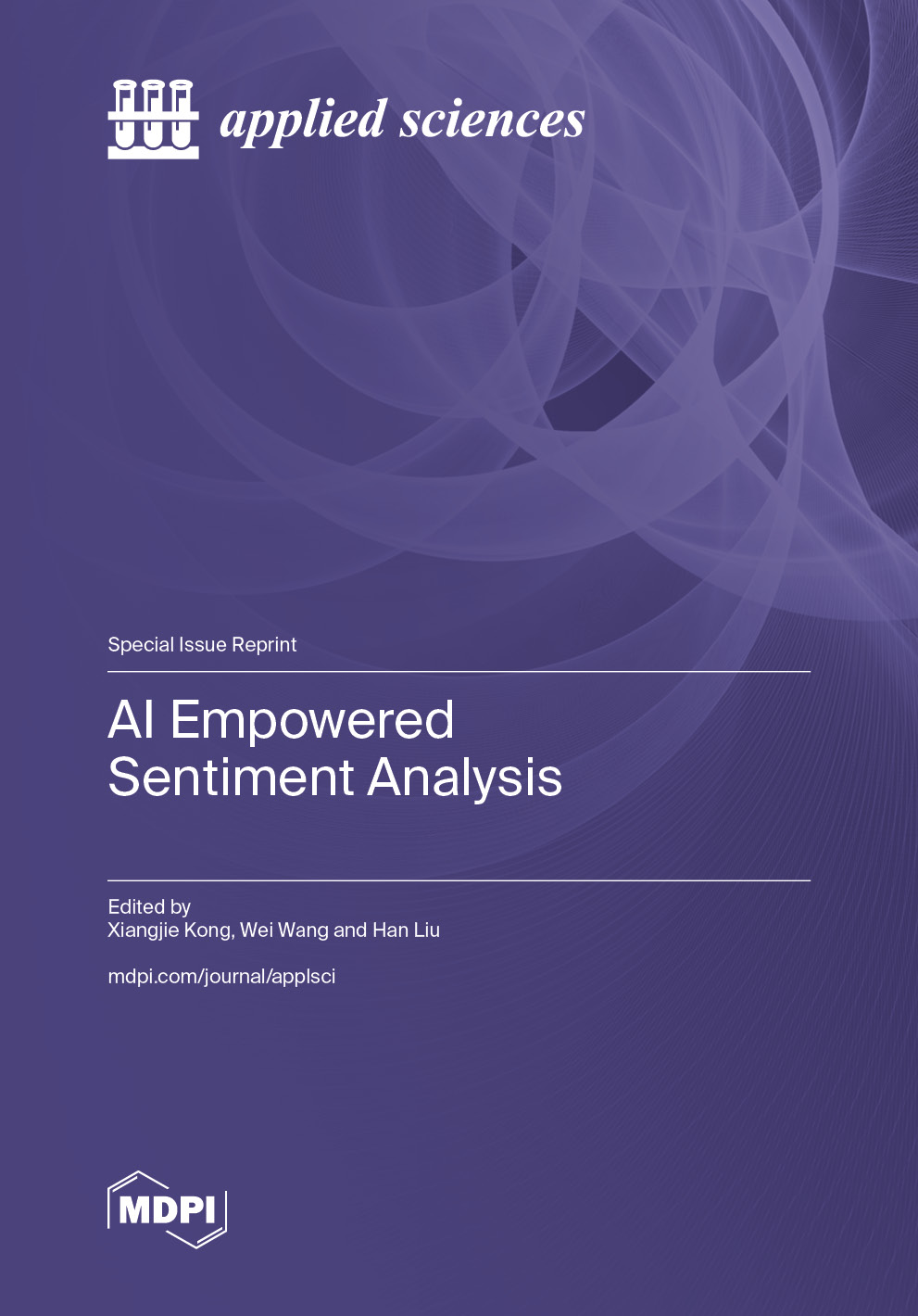AI Empowered Sentiment Analysis

Download Url(s)
https://mdpi.com/books/pdfview/book/9672Contributor(s)
Kong, Xiangjie (editor)
Wang, Wei (editor)
Liu, Han (editor)
Language
EnglishAbstract
With the popularity of the social media, a large amount of user-generated content, such as comments, is emerging, which is crucial for all industries. Recently, the development of deep learning and computing power have made it possible to handle complex data. However, there are still some including (but are not limited to): (1) How can we construct a multi-modal sentiment analysis framework? (2) How can we accurately extract aspect–sentiment quadruples? (3) How can we generate fine-grained sentiment text? To tackle these challenges, this Special Issue focuses on multi-modal sentiment analysis, aspect–sentiment extraction, interpretability, and so on. In the following, we briefly summarize the selected two papers that we believe will make significant contributions. (1) "Generative Aspect Sentiment Quad Prediction with Self-Inference Template" by Li et al., considered that current research predominantly confines templates to single sentences, limiting the model’s reasoning opportunities. Therefore, the authors introduce a self-inference template (SIT) to guide the model in thoughtful reasoning. (2) "Interpretability in Sentiment Analysis: A Self-Supervised Approach to Sentiment Cue Extraction" by Sun et al., proposes a new sentiment cue extraction (SCE) self-supervised framework, aimed at improving the interpretability of models. In conclusion, we extend our heartfelt appreciation to all the authors and reviewers who selflessly put their energy to ensure the successful completion of this Special Issue.
Keywords
artificial intelligence; natural language processing; controllable text generation; review generation; pre-trained language model; fine-grained sentiment; word embeddings; BERT; sentiment analysis; convolutional neural network; sentiment lexicon; autoregressive model; customer reviews; deep learning; emotion analysis; optimized classification; review text for online courses; attention mechanism; gating mechanism; ASTE; biaffine attention; structure-biased BERT; GCN; linguistic feature; aspect-level sentiment analysis; graph attention network; feature extract; scene generation; story visualization; GAN; story understanding; language learning; personality traits; text analytics; machine learning; MBTI; COVID-19; social media; Reddit; emotions; resilience; multimodal; emotion recognition; feature extraction; feature-level fusion; speaker recognition; font recommendation system; content emotion analysis; emotion calculation models; usability evaluation; emotion-based font recommendation; multimodality; triplet extraction; Graph Neural Networks; sentiment cue extraction; self-supervised learning; interpretable machine learning; aspect-based sentiment analysis; aspect sentiment quad prediction; aspect-category-opinion-sentiment; chain of thought; promptWebshop link
https://mdpi.com/books/pdfview ...ISBN
9783725818235, 9783725818242Publisher website
www.mdpi.com/booksPublication date and place
2024Classification
Computing and Information Technology
Computer science

